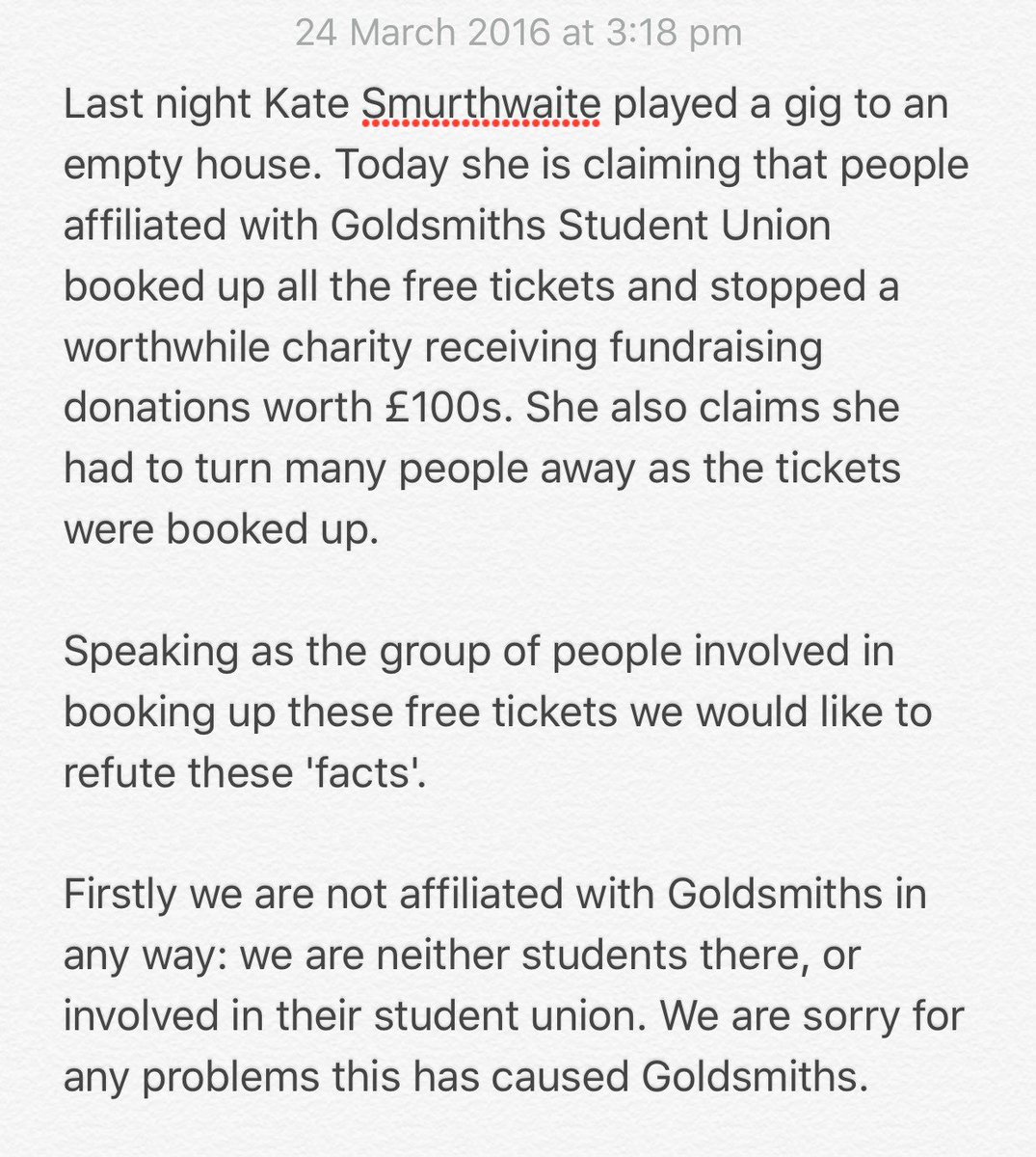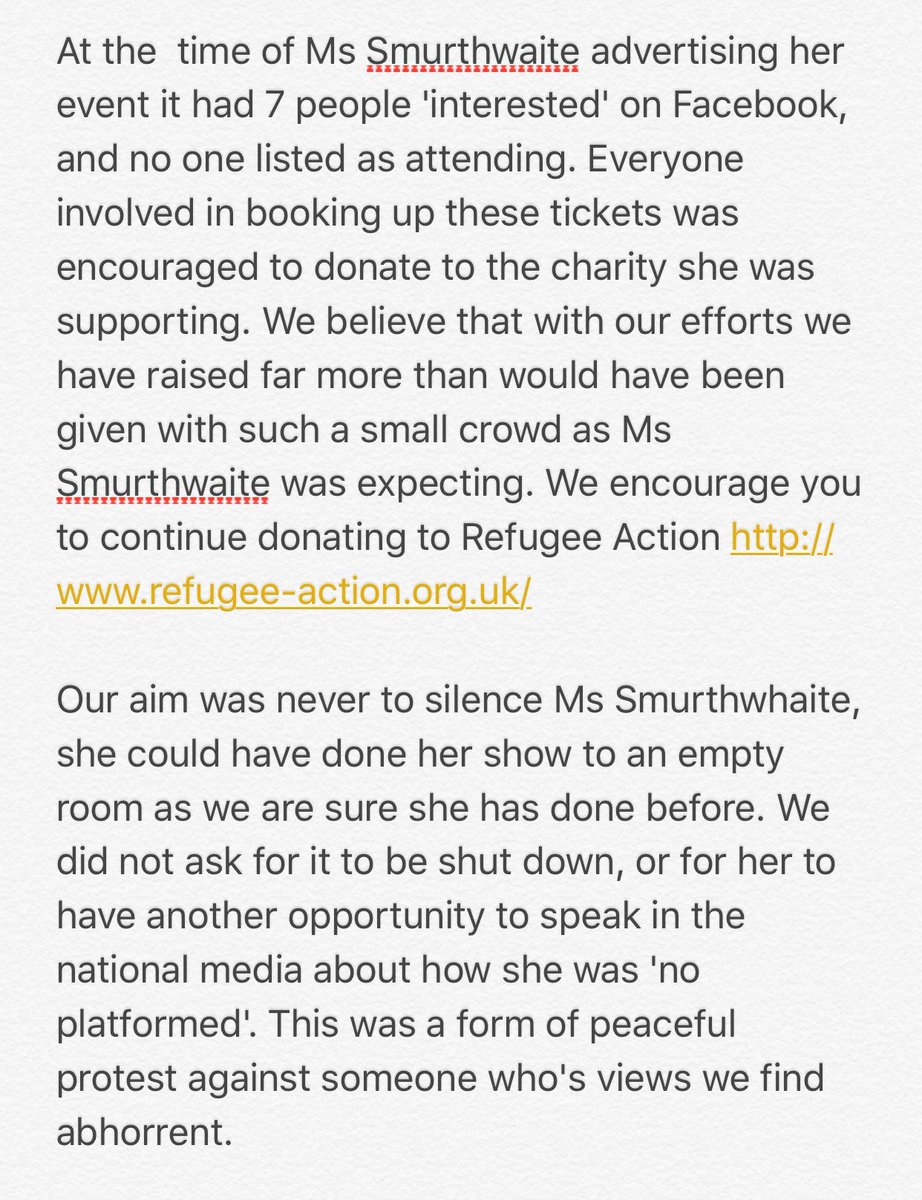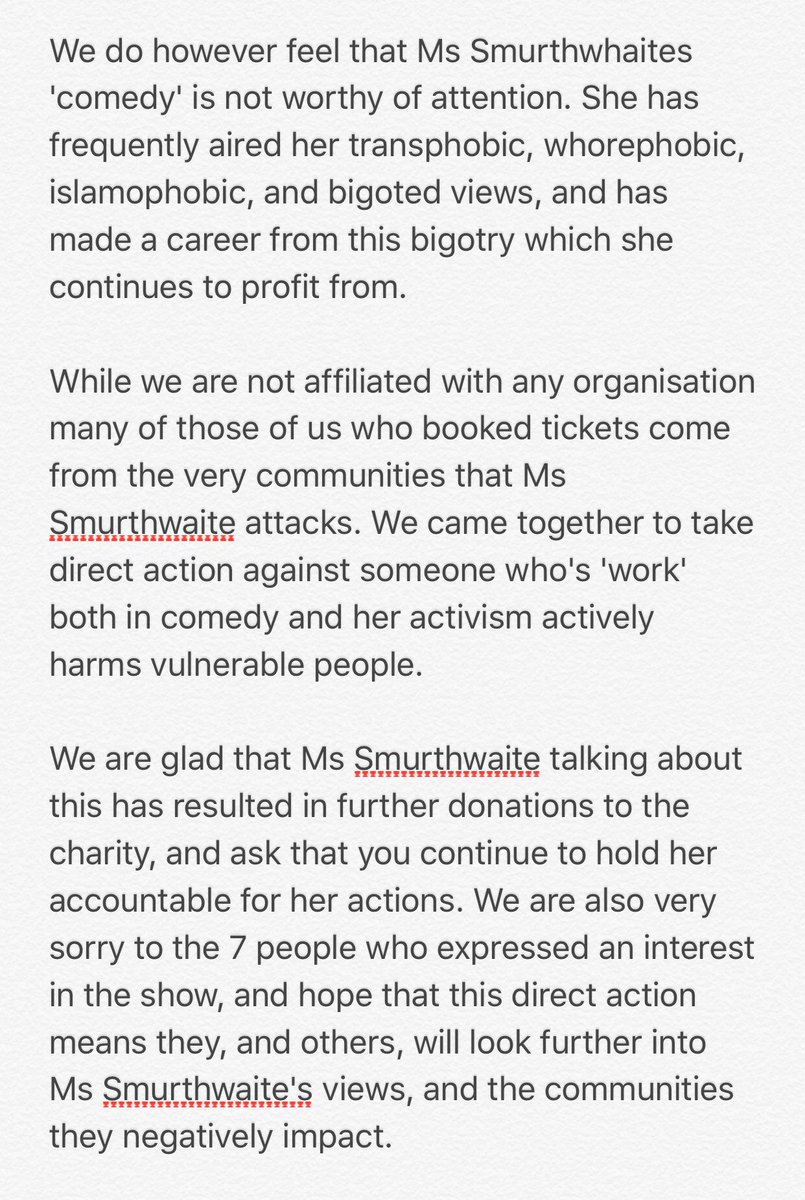Sarah Peace on the so-leftwing-it’s-rightwing idea that it’s colonialist to oppose FGM.
I was to find out that my brazen anti-FGM stance is ‘regurgitating the hideous colonial project that imposed itself on the rest of the world on a civilizing mission to rescue the women of the third world from its savage men’. The rationale I am told, is that even as a Nigerian born woman, I cannot speak for other less privileged Nigerian women, how much less, a white woman on behalf of ethnic minorities.
It was at Goldsmiths University that I came to witness this betrayal first hand, which ascribes brutality onto people from other places as part of culture but fashions itself so self-righteously.
Goldsmiths – well of course it was.
Goldsmiths, very much like SOAS seems to be the hotbed of this double standard reinforced by some academics and propagated by a faction of student activists. In December 2015, the feminist and LGBT societies at Goldsmiths left even their own members baffled by their decision to extend ‘solidarity’ to the Islamic society, whose members disrupted human rights campaigner Maryam Namazie’s lecture. They had deemed Namazie a ‘notorious Islamophobe’, for referring to the veil as ‘bin bags’. During the lecture, Namazie backed up her statement and reinforced the importance of continued opposition against traditions such as FGM which are an affront to women’s rights.
When probed on the matter, a representative of the Goldsmiths LGBT society responded that as a white person, she “cannot condemn FGM because of my colonial past.” Is this putative desire to carry the burdens of the past squarely on one’s shoulders echoed among feminists?
Some of them, yes. I wrote a furious post in 2008 about some on the Women’s Studies mailing list.
Back to Sarah Peace:
Germaine Greer once argued that attempts to outlaw FGM amounted to ‘an attack on cultural identity’, stating: “one man’s beautification is another man’s mutilation.” Greer was widely condemned, almost unanimously. Nearly 20 years on, some fields of study in academia including critical race and gender theory are reawakening the same argument albeit from a postcolonial perspective – the difference now being that a generation of ethnic minority students have themselves, bought into this defeating narrative. The narrative becomes upturned, and any cause that contravenes the ugly history of colonialism is one they would sign up to, regardless of the implications.
This pattern of taking an apologetic stance is increasingly expressed on the far-reaching left, reinforcing the idea that concerns of gender based violence become a separate issue to feminism if the perpetrator is brown or black. The issue is deemed as ‘their own problem’, inherent to their culture, which should be left to them.
Rather the way the Final Solution was the Jews’ own problem which should have been left to them, I suppose.
It is possible that lecturers are finding it increasingly difficult to swim against the wave of regressive thought endemic to courses in humanities, nevertheless students should be presented with the plural sides of the debate. There was no mention of African feminists who have dedicated their lives to banishing FGM, such as the [late] Ghanaian activist Efua Dorkenoo, who worked tirelessly for 30 years and pioneered the global movement to end the practice, along with Egyptian feminist Nawal El Saadawi, a vocal abolitionist. In the diaspora, campaigners of African heritage include Mona Eltahawy, Ayaan Hirsi Ali, Amal Farah, Nahla Mahmoud, Bogaletch Gebre, Alishba Zarmeen, Jaha Dukureh, Hibo Wardere, Salimata Knight, Mona Walter,Sainab Abdi, Leyla Hussein, Nimko Ali and many others too numerous to list.
Unlike veiling, FGM is not a category to which we can apply surplus doses of cultural relativism or justification by brandishing theories of orientalism and notions of colonial resistance. If we truly stand for universal human rights, we must demand better from our institutions.
Universal human rights of course are what lefties of the Goldsmiths type don’t stand for, and that’s what makes them so right wing under the left wing makeup.






